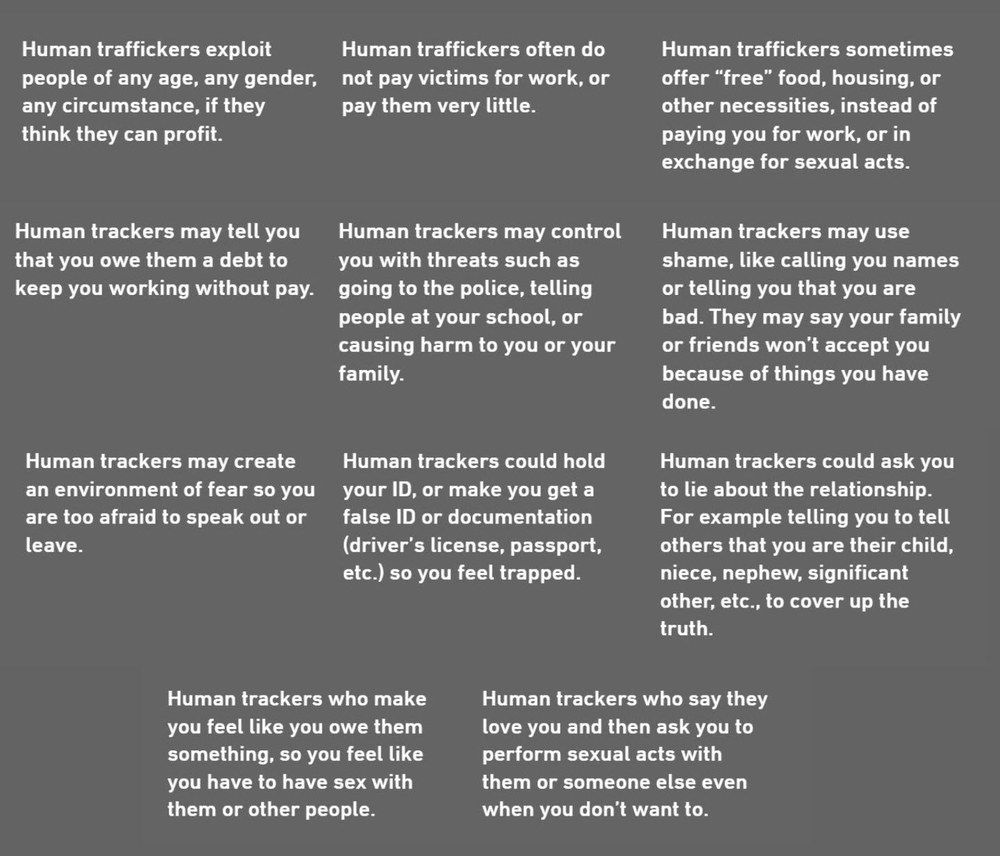Recognizing Human Trafficking
This page explores how to recognize Human Trafficking
Anyone can be a victim of human trafficking.
You may not know if you are being trafficked. You may not understand what it means to be exploited. You may not realize you are doing things because someone else is making you do them. Many people may not know what force, fraud, and coercion look like within a relationship, and may not have experienced or witnessed a healthy relationship.
But you do know something isn’t right.
Human traffickers will use any vulnerability or need—it could be something like housing, food, or simply a need to be seen or feel loved—to control their victims and benefit themselves (usually financially or sexually.)
It can be difficult to recognize.
It might be very hard to acknowledge and accept that the person you trust could be taking advantage of you. However, if you can begin to identify your situation, it’s the first step toward freedom from exploitation.
Here are a few facts to help you consider your circumstances.
They do not determine human trafficking, they are simply meant to help you self-assess, and if you choose, speak with a trauma-informed service provider who is trained in addressing human trafficking issues.

It is not your fault.
Being in an abusive situation does not make you weak or ignorant. It is not something to be ashamed of. People who have been exploited are also strong, resilient, smart, kind, and capable of an amazing future.
Reach out.
You may feel like it is your fault, or you may feel ashamed, but you are not to blame. Talk to someone. A friend, neighbor, teacher, coach, member of your church, health care provider, even a waiter or store clerk. Talking to someone you trust can be a good first step. No matter what, you can always anonymously call 911, or the National Human Trafficking Hotline at 1-888-373-7888 to find out what resources are available to help, or to ask questions.
